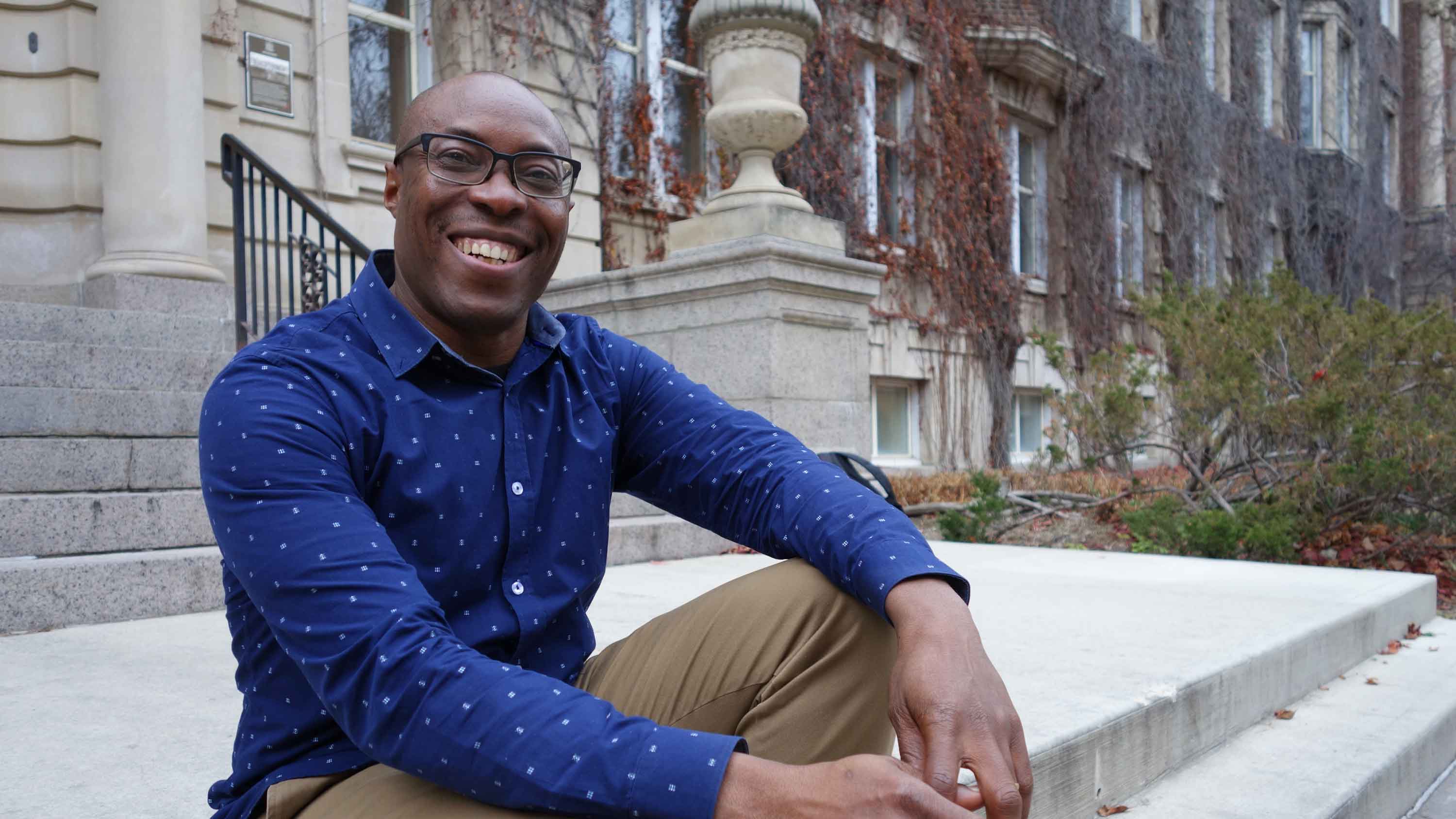As a first-year student at Nigeria’s Abia State University, Uchechukwu Peter Umezurike dreamed of becoming a banker or financial expert.
His first program choices were business administration and banking — fields that could lead to a lucrative career. But his grades for math were poor, so he ended up studying government and public administration, subjects that failed to light his fire.
“I wasn’t paying much attention to my courses,” said Umezurike. “One of the ways I fended off the boredom was to read English literature.”
He managed to graduate, but by then his passion for all manner of writing — poetry, short stories, plays and novels — had made its claim. He sharply changed course and pursued a master’s degree in English literature at the University of Port Harcourt.
That decision would eventually take him to the University of Alberta’s Department of English and Film Studies to earn a doctorate, and lead to fame in his home country after he captured the 2021 Nigeria Prize for Literary Criticism, sponsored by the natural gas company Nigeria LNG.
According to the prize jury, the award recognizes the “depth, rigour and significance” of three of Umezurike’s essays, including “Self-publishing in the era of military rule in Nigeria, 1985–1999.”
Given the scarcity of such honours on the continent, the prize has garnered considerable attention and media coverage not only in Nigeria but throughout Africa’s literary community, said Umezurike. It is considered the foremost prize for literary criticism in Africa.
Umezurike is also a published author of fiction and poetry. But in his academic work he examines representations of gender in African literature written in English.
His master’s project looked at the sexual objectification of women in two novels, including On Black Sisters’ Street by Chika Unigwe, which follows the journey of four African women who leave home for the promise of riches in Europe.
Umezurike’s doctoral work, under the supervision of Lahoucine Ouzgane, focuses on “images of men and women who have reimagined, enforced or even challenged masculinity,” he said.
“My research has always focused on how men and women are represented in fiction and what that says about the larger society — how certain gender ideologies and sexual norms define how we should recognize, relate to, accept or even affirm people.”
But of all the English programs in the world, why did Umezurike choose the U of A?
“I decided to come here based on encouragement and advice from friends of mine who studied in Canada or at a Canadian university,” he said.
“There had been a significant presence of Nigerian scholars already in the Department of English and Film Studies, and they spoke glowingly of it. So I thought this should be one of my top choices.”
It didn’t hurt that Ouzgane had already explored the territory with African Masculinities: Men in Africa From the Late 19th Century to the Present.
“I feel I made the right choice to study here,” said Umezurike. “One principle that guides the way I see life is openness — being receptive to new experiences, cultures, cuisine and knowledge. Once I decide to embrace something, I wholeheartedly embrace it.
“Grad studies is always fraught with self-doubts and anxiety,” he added, “and I've had a supervisor who supported me throughout the process.”
Umezurike heads next to the University of Calgary as an inaugural recipient of the university’s Provost’s Postdoctoral Awards for Indigenous and Black Scholars. His project will consider how African Canadian filmmakers and writers imagine their new home in Canada, “particularly within the context of Indigenous Peoples and their sovereignty.”
“What does that mean for Black African Canadians to claim a home on Indigenous lands?”
